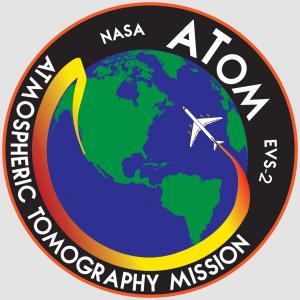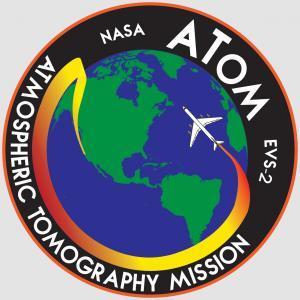The first dataset from the ATom project has been published at the ORNL DAAC:
ATom: Merged Atmospheric Chemistry, Trace Gases, and Aerosols
This dataset provides information on greenhouse gases and human-produced air pollution, including atmospheric concentrations of carbon dioxide (CO2), methane (CH4), tropospheric ozone (O3) and black carbon (BC) aerosols, collected during airborne campaigns conducted by NASA's Atmospheric Tomography (ATom) mission. This dataset includes merged data from all instruments. A variety of merged file types have been created for each flight date. The merge files include additional data such as numbered profiles and distance flown. In the case of data obtained over longer time intervals (e.g. flask data), the merge files provide (weighted) averages of 1-second data to match the sampling intervals. Complete aircraft flight information including, but not limited to, latitude, longitude, and altitude are also provided. This dataset provides results from the Summer 2016 and Winter 2017 flight campaigns. Data from subsequent campaigns will be added when it is finalized.
ATom deploys an extensive gas and aerosol payload on the NASA DC-8 aircraft for systematic, global-scale sampling of the atmosphere, profiling continuously from 0.2 to 12 km altitude. Flights occurred in each of 4 seasons from 2016 to 2018. Flights originate from the Armstrong Flight Research Center in Palmdale, California, fly north to the western Arctic, south to the South Pacific, east to the Atlantic, north to Greenland, and return to California across central North America. ATom establishes a single, contiguous global-scale dataset. This comprehensive dataset will be used to improve the representation of chemically reactive gases and short-lived climate forcers in global models of atmospheric chemistry and climate. Profiles of the reactive gases will also provide critical information for validation of satellite data, particularly in remote areas where in situ data is lacking.
Data Citation:
Wofsy, S.C., E. Apel, D.R. Blake, C.A. Brock, W.H. Brune, T.P. Bui, B.C. Daube, J.E. Dibb, G.S. Diskin, J.W. Elkiins, K. Froyd, S.R. Hall, T.F. Hanisco, L.G. Huey, J.L. Jimenez, K. McKain, S.A. Montzka, T.B. Ryerson, J.P. Schwarz, B.B. Stephens, B. Weinzierl, and P. Wennberg. 2018. ATom: Merged Atmospheric Chemistry, Trace Gases, and Aerosols. ORNL DAAC, Oak Ridge, Tennessee, USA. https://doi.org/10.3334/ORNLDAAC/1581
Data center: ORNL DAAC
Sponsor: NASA EOSDIS


